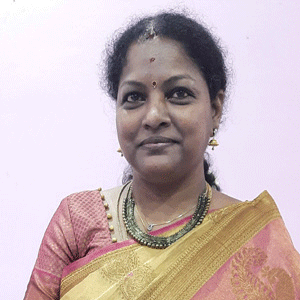
Agriculture and food testing services are in significant demand in emerging and marketing countries due to the growing awareness of benefits of these analytical services to improve the yield of crops and quality of produces. Agricultural testing services are popular in commercialized agriculture countries to support agriculture for both domestic and export purposes. Stringent agricultural productivity and environmental safety oriented requirements have been major drivers of expansion in the market for agricultural testing services.
C. Subramaniam (Architect of India's Green Revolution and Bharat Ratna Awardee) established the National Agro Foundation (NAF) as a Public Charitable Trust in 2000 to usher in rural revolution with a special focus on agriculture and development of small and marginal farmers to bring about inclusive growth. Mr. Subramaniam, the creator of India's Green Revolution with a 'Seed to Grain' strategy, envisioned NAF for long-term economic and social development of farmers with a 'Soil to Market' approach. Dr. A P J Abdul Former President of India, followed Mr. Subramaniam and was Chairman of NAF's Governing Council till he was elected President of India. In the context of agriculture and rural development, NAF has articulated an agile strategy with the primary focus on advancing and strengthening the interdependent and mutually reinforcing pillars of sustainable development, with 'Education', 'Economy', 'Environment', and 'Empowerment' as its thematic focus.
Thus, NAF aims at transforming the direction of the Indian agriculture from production-oriented to market-oriented by developing an integrated & innovative rural development model which can be replicated across India.
NAF endeavors to update its analytical services portfolio in response to stakeholders’ requirements, and in fact began with agriculture soil testing before moving on to water testing in order to meet client requests. Since the 2000s, NAF is extending comprehensive soil health diagnosis including major, secondary and micronutrients as well as nutrient recommendations to the farming community to improve soil health and enhance crop yields. The soil testing lab, which is accredited as per ISO/IEC 17025: 2017 standard by NABL, a Constituent Board of Quality Council of India, plays a critical role in supporting soil fertility enhancement for sustainable and environmentally safe agriculture.
NAF has also established the Food Testing Laboratory to provide NABL accredited food testing services for the nutritional labeling of food products specially to serve the underprivileged who have less access to quality testing services at affordable rates. They work with micro, small, and medium-sized food businesses and offer analytical, advisory and new product development/ modification services. Later on, they ventured into organic fertilizer testing, because as part of the sustainable and safe agriculture methods, they strive to limit the use of chemical fertilizers while increasing the number of organic and bio products to balance the soil nutrition. The USP of NAF is to provide quality and affordable analytical and need based advisory services to the customer to ensure the sustainable agricultural development and safer food to the public.
NAF strives hard to promote the sustainable agricultural practices, at the grassroots ably supported by scientific analytical services for agriculture value chain, and enables sustainable & environmentally safer food production
Technology is growing so quickly that it might be tough for organisations like NAF to keep up because they cater to the requirements of the disadvantaged people, who don't have much access to testing facilities. NAF understands the value of agricultural testing services in improving India's food and nutritional security. Therefore, NAF wishes to create a separate entity or a special purpose vehicle to undertake extensive R&D and testing services to support the farming community/Farmers Producers Organisations (FPO) through product innovations/development to strengthen the quality assurance and fulfill regulatory norms, and then, enhance their capabilities to export the products to other parts of the world concludes Dr. Kalpana Rajesh.
We use cookies to ensure you get the best experience on our website. Read more...